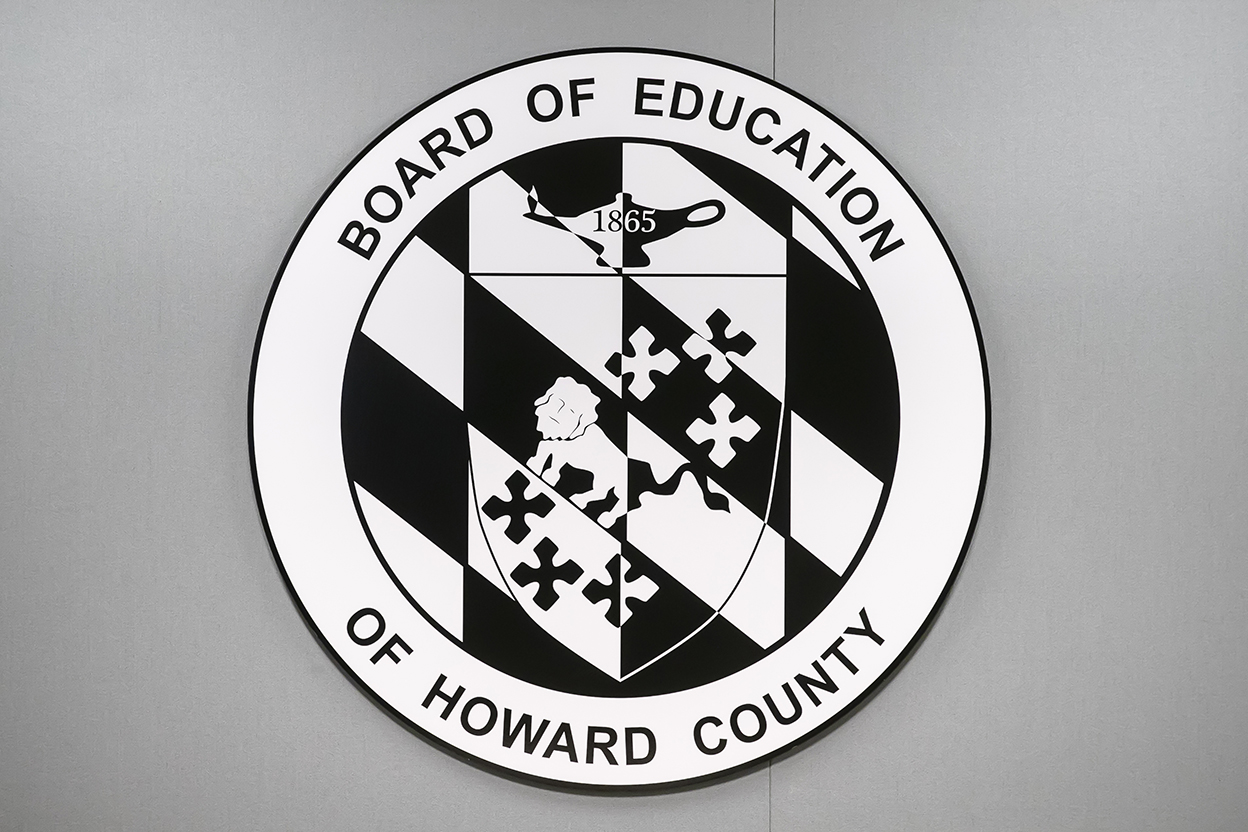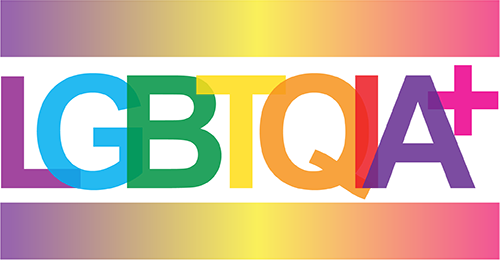LGBTQIA+ Youth
Lesbian, gay, bisexual, transgender, questioning, queer, intersex, asexual, and more
HCPSS Support for LGBTQIA+ Students and Families
HCPSS remains steadfast in its commitment to providing a safe, supportive, and welcoming learning environment for all students. This imperative guides the school system’s efforts as it collaborates with local, state, and federal partners to support students and families. READ the full statement →
Attorney General of the State of Maryland Guidance to the LGBTQIA+ Community
Maryland Attorney General Anthony G. Brown recently provided written guidance to the LGBTQIA+ community concerning protections under Maryland law that includes expectations for schools. View the attorney general’s message;→
HCPSS is committed to providing an educational and work environment that is free from discrimination, fosters equitable opportunities, and values diversity and commonality.
HCPSS ensures the safety, comfort, and healthy development of LGBTQIA+ students.
As stated in Howard County Board of Education Policy 1010 Anti-Discrimination, HCPSS prohibits any behaviors that interfere with providing a safe and supportive environment for all students, including discrimination based on race, national origin, marital status, sex, sexual orientation, gender identity, gender expression, religion, disability, or any other protected status in accordance with applicable law. Further, Board of Education Policy 1080 Educational Equity adds, the Board is committed to providing all students with a dynamic and educational program that nurtures their cognitive, social and emotional well-being and affirms their identity and experience, in order to maximize each student’s individual potential.
Administrators and school staff will consider the needs of students on a case-by-case basis and use this information and other available resources, as appropriate. Individual student needs, including age and other factors, are central to the supports developed.
Supporting Our Students
All HCPSS students should feel comfortable expressing their gender identity. The needs of each student will be supported on an individual basis. In all cases, the goal is to ensure the safety, comfort, affirmation, and healthy development of the student while supporting their social integration and ending the stigmatization and violations of dignity. HCPSS strives to maintain the privacy of all students and families and to further the successful educational development and well-being of all students. As with all aspects of a student’s school experience, HCPSS believes that students do best when supported by family and community. However, parent consent is preferred but not required for schools to affirm student name and pronoun requests. HCPSS recognizes that supporting and affirming gender identity can be difficult to navigate for students and families. Staff in the HCPSS Department of Program Innovation and Student Well-being are available to discuss and consult regarding student supports.
Rainbow Representatives
Every HCPSS school has at least one staff member who serves as a Rainbow Representative, who works to create a more welcoming community for LGBTQIA+ students; provide instructional support for educators; ensure their school is an ally and advocate for LGBTQIA+ students, staff and families; and communicate information shared by Student Support Programs to each school’s administration, staff and community.
Student Gender in School Records
The Maryland Student Records System Manual states “self-identification of a student’s gender is sufficient for local school system reporting of student record information to the MSDE.” The MSRSM allows students to self-identify as 1 – male, 2 – female, or x – non-binary (student identifies as neither male or female or both). Information on paper copy files, such as the student’s name of cumulative and health room files, will be amended if a change in gender is requested, as will records in the student information system. Most retroactive documents (old report cards, health documents, etc.) will not be amended. Students should meet with a school counselor to initiate the change process and discuss possible implications or outcomes
Masking Names and Gender
HCPSS has a masking process for students who are not changing their legal name but want their presenting name, on most documents, to be something other than their legal name. Parent consent is not required, but parents will know about the change (e.g., through report cards). Students should reach out to their school counselor to discuss the many factors that might impact their decision to seek this change.
Preferred Names
In early 2021, HCPSS began the use of preferred names in applications such as Canvas and Google Drive. Students who wish to use a preferred name may notify their school’s front office staff. A preferred name is different from a masked name as preferred name and legal name will both appear in records.
Pronouns
Students may opt to add pronouns in various Canvas pages, including discussion posts, inbox messages and gradebooks.
Seeking Support and Assistance
If a student or family needs additional support, school counselors, other student services staff members, and school administrators are all available to offer support and/or assistance. School staff are prepared to support and work with individual students and families and will keep information confidential.
For more information or additional support, call the HCPSS Office of Diversity, Equity and Inclusion at 410-313-6600 or the Office of School Counseling at 410-313-6748.
For additional Mental Health and Wellness resources to support students, start here.

Reporting Discrimination and Harassment
It is the intent of HCPSS to provide a safe school environment to all students, which includes students who identify as part of the LGBTQIA+ community. Any incident of discrimination, harassment, or violence will not be tolerated. These incidents will be given immediate attention, including investigation of the incident, taking appropriate corrective action, communicating with the students, parents, or others who need to know, and providing students and staff with appropriate resources.
Reports to the Title IX Coordinator should be directed to:
-
TitleIXCoordinator@hcpss.org
Title IX Coordinator, 10910 Clarksville Pike, Ellicott City, MD 21042
410-313-6654
Complaints alleging discrimination or harassment based on a person’s actual or perceived gender identity are handled in the same manner as other discrimination or harassment complaints, as defined in Board of Education Policies 1010, 1020, and 9460.
Resources & Supports
Local Resources
- HCPSS Pride provides links to HCPSS sponsored events and resources that aim to connect and affirm LGBTQIA+ students, staff, families, community and their allies.
- Community Allies of Rainbow Youth (CARY) works with allies within schools to advocate for a safe and affirming learning environment for LGBTQ+ youth, raise awareness of LGBTQ+ issues, increase understanding of youth experiences across the LGBTQ+ community, and provide resources and support for all LGBTQ+ allies.
- PFLAG Columbia/Howard County is the local branch of the national organization that works to achieve equality for all in schools.
- Safe and Supportive Schools for All Students: Creating Inclusive Spaces for LGBTQIA+ Youth is guidance put forth by MSDE 10/2024 on supporting LGBTQIA+ students in school
- Howard County Department of Health offers crisis service resources
- MPSSAA Guidance for Participation of Transgender Youth in Interscholastic Athletics outlines support for transgender youth participating in interscholastic athletics.
- The Pride Center of Maryland offers support groups, counseling, and other services to support LGBTQIA+ youth in Maryland.
- LGBTQIA+ Commission of Howard County focuses efforts on equity, inclusion, communication, understanding, and respect for all gender and sexual identities.
- Unmatched Athlete has free or low-cost events for LGBTQIA+ and ally youth and families to connect through athletic activities.
- FreeState Justice offers free legal services and policy advocacy to support LGBTQ+ individuals.
- TransMaryland provides training and resources for transgender youth and adults and for those who support them.
National Resources
- GLSEN is a national organization for educators and students who want to create schools where differences are respected. They support Safe Space training, a Day of Silence event, GSA clubs, and other resources for educators.
- PFLAG is the national organization that works to achieve equality for all in schools.
- HRC Foundation provides support for public education, research, and policy and practice change to support the LGBTQIA+ community.
- LGBT National Help Center has free & confidential peer-support, information, and local resources through national hotlines and online programs.
- The Trevor Project is the leading national organization providing crisis intervention and suicide prevention services to lesbian, gay, bisexual, transgender, queer & questioning (LGBTQ) young people under 25.
- Queer City Sports has opportunities to participate in a fun, social space for people to come as they are and play to their abilities.
- Learning for Justice (formerly Teaching Tolerance) is a place for educators to find thought-provoking news, conversation and support for those who care about diversity, equal opportunity and respect for differences in schools.
- Best Practices: Creating an LGBTQ-inclusive School Climate is a guide for school leaders on teaching tolerance for LGBTQIA+ students.
Board of Education Policies
Primary Policies
Policy 1010 Anti-Discrimination prohibits discrimination on the basis of gender expression, gender identity, and sexual orientation, which are specified as protected classes.
Policy 9460 Bullying, Cyberbullying, Harassment, and Intimidation Involving Students prohibits intentional conduct, including verbal, physical, or written conduct, or an intentional electronic communication that creates a hostile educational or work environment by substantially interfering with a student’s or employee’s educational or employment benefits, opportunities, or performance, or with their physical or psychological well-being and is motivated by an actual or a perceived personal characteristic including sexual orientation or gender identity.
Policy 1080 Educational Equity seeks to achieve educational equity by establishing expectations related to the identification and elimination of disparities in education outcomes. It references sexual orientation and gender identity in its definition of diversity and specifically mandates culturally responsive curriculum that includes LGBTQIA+ perspectives.
Additional Related Policies
- Policy 1020 Sexual Discrimination, Sexual Harassment, and Sexual Misconduct
- Policy 1040 Safe and Supportive Schools
- Policy 9050 Student Records
- Policy 9080 Interscholastic Athletic Programs

Contact
- Kami Wagner, Coordinator for School Counseling and Student Records
- Danielle DuPuis, LGBTQIA+ Initiatives Specialist
